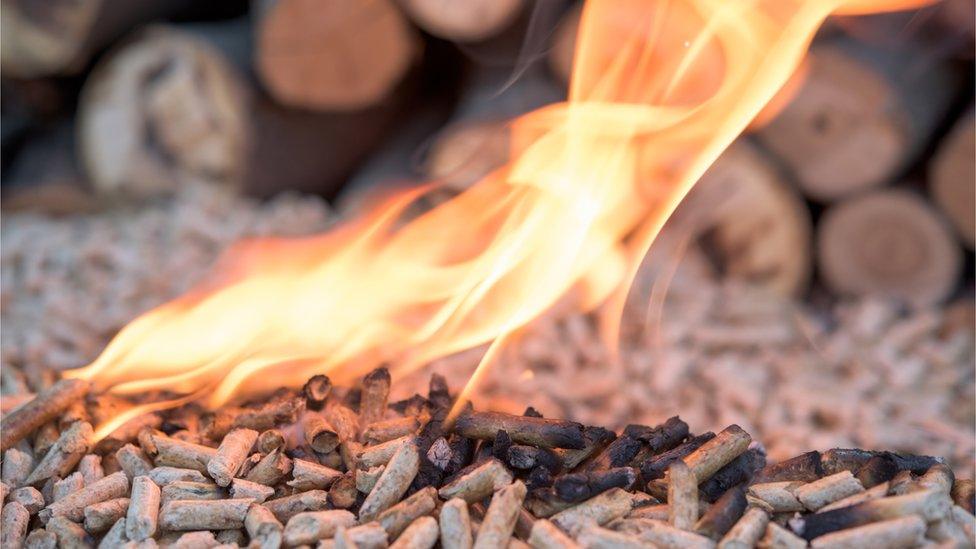Extension sought to RHI cost-cutting plan
- Published
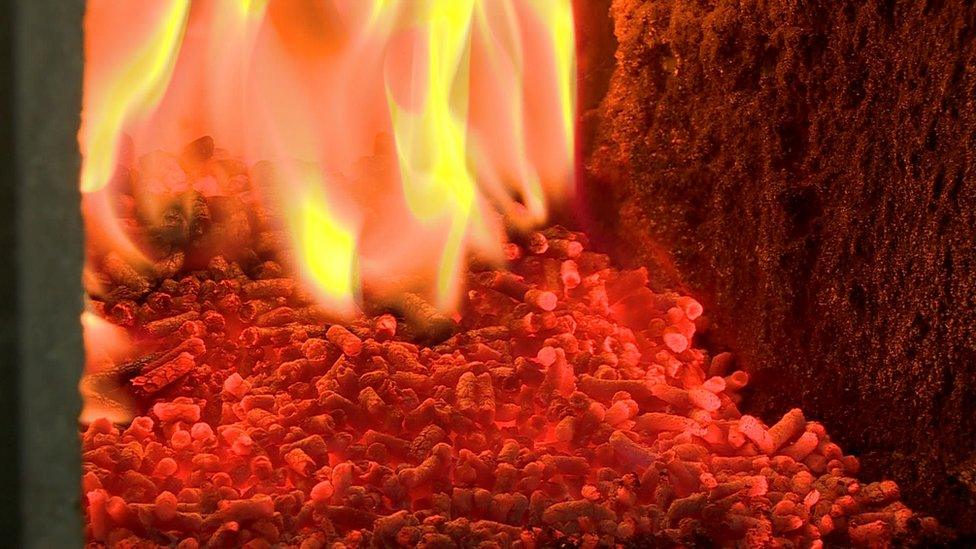
Rules that were designed to cut the Renewable Heat Incentive (RHI) scheme's projected overspend could be extended, a Stormont department has said.
The measures, which took effect in April initially for one year, reduced the tariffs offered to beneficiaries of the botched green energy scheme.
Flaws in the scheme meant it spiralled beyond its budget. At one stage it had a projected overspend of £490m.
The Department for the Economy has said it intends to extend the cost-control plan for a further 12 months.
In a statement on Wednesday, it said the extension was "a temporary measure, which will give the department the opportunity to develop the long-term arrangements needed".
The regulations were approved by MLAs just before the Northern Ireland Assembly collapsed in January.
But a group representing boiler owners who are claiming from the scheme began a legal challenge against the plan.
The Renewable Heat Association (RHANI) said in April that some of its members' firms are folding because of the cuts to their payments from the RHI scheme.
On Wednesday, it said scheme participants had been assured that the 2017 regulations were for a limited period.
"We had suspected that the announcement of the pilot or token 20 inspections was a means of distracting public attention from this deeply worrying policy decision," said RHANI's executive chairman Andrew Trimble.
He added that a previous court hearing had been told that the Department for the Economy "did not have the lawful authority to breach the guarantees entered into when it launched the scheme".
RHANI's website had been busy all day, he said, as churches, charities and companies joined the organisation.

Analysis: BBC News NI environment correspondent Conor Macauley
The new tariff rules were a one-year emergency measure to tackle a projected £490m overspend in the 20-year scheme.
It has been estimated that this year they will reduce the in-year overspend from £30m to £2m.
Now officials have a plan to extend them for up to another 12 months.
For that to happen would require either assembly approval or sign-off by a direct rule minister.
It also assumes that a High Court challenge to the new tariff regime by boiler owners in October will be unsuccessful.

On Wednesday, the Department for the Economy said its cost-cutting plan had "brought the forecast scheme expenditure back into line with the budget provided by the UK government".
It added that it must wait until the court judgement on the legal challenge before it can propose a long-term measure to cut the overspend.
It also said there was not enough time before the end of initial one-year plan next April for a long-term solution to be proposed, consulted on and put in place.
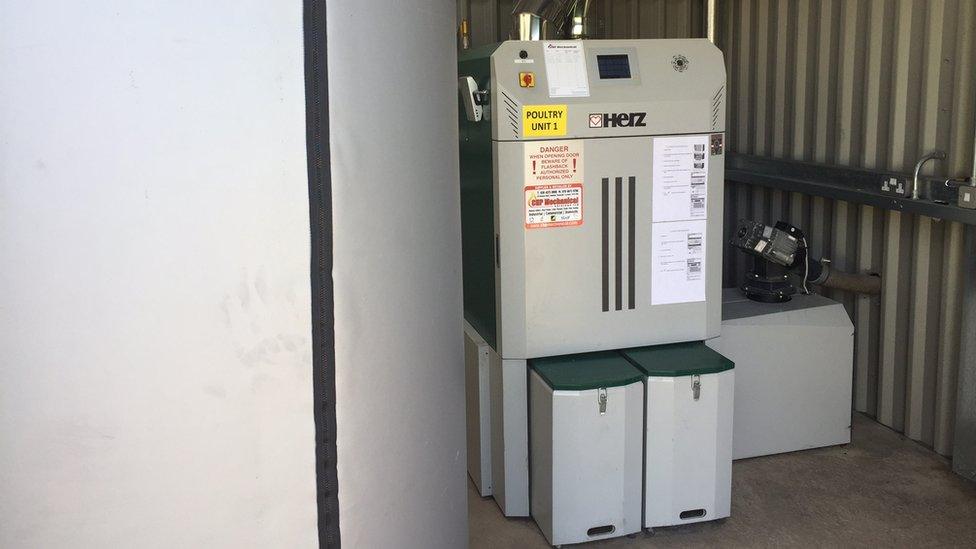
Therefore, it is seeking a 12-month extension - until 31 March 2019 - on the temporary regulations.
On Tuesday, the department announced that inspections of boiler sites are to begin.
Major scandal
The so-called "cash-for-ash" scandal has been the backdrop of major political upheaval in Northern Ireland over the past year.
The RHI scheme was set up by the Northern Ireland Executive in 2012, with the intention of increasing the consumption of fuel from renewable sources, rather than fossil fuels.
Biomass boilers burning wood pellets were installed by most beneficiaries of the scheme.
But a critical flaw - an overgenerous subsidy offer - effectively allowed them to earn more cash the more fuel they burned.
The fallout from the scandal resulted in the collapse of the Stormont assembly and executive and the calling of a snap election in March.
A judge-led public inquiry into the scandal has also started and is expected to hold its first public evidence sessions in September.
- Published15 August 2017
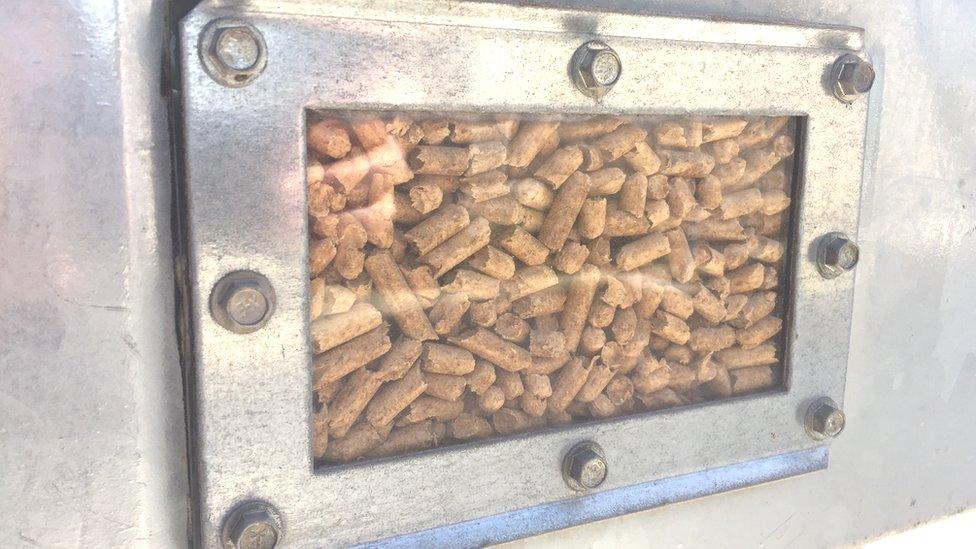
- Published6 June 2017
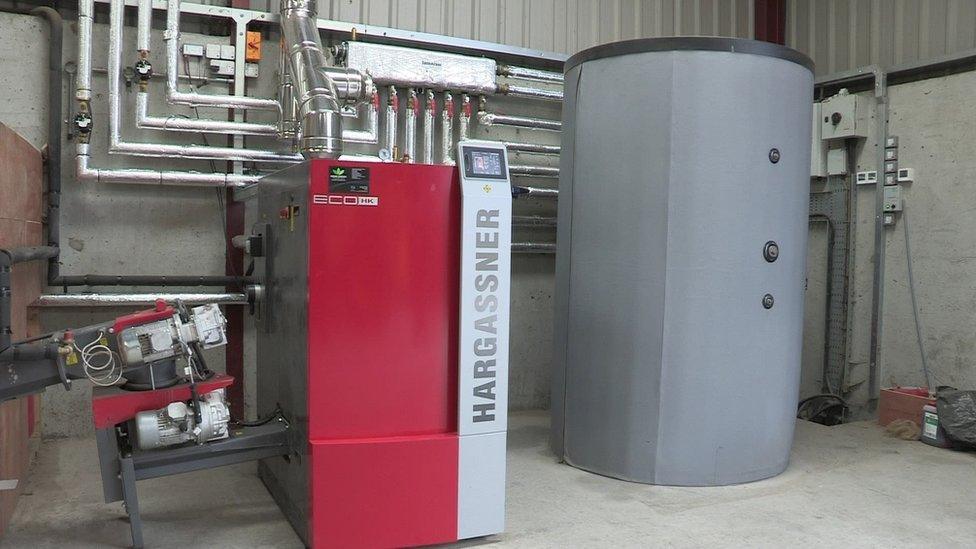
- Published6 April 2017
